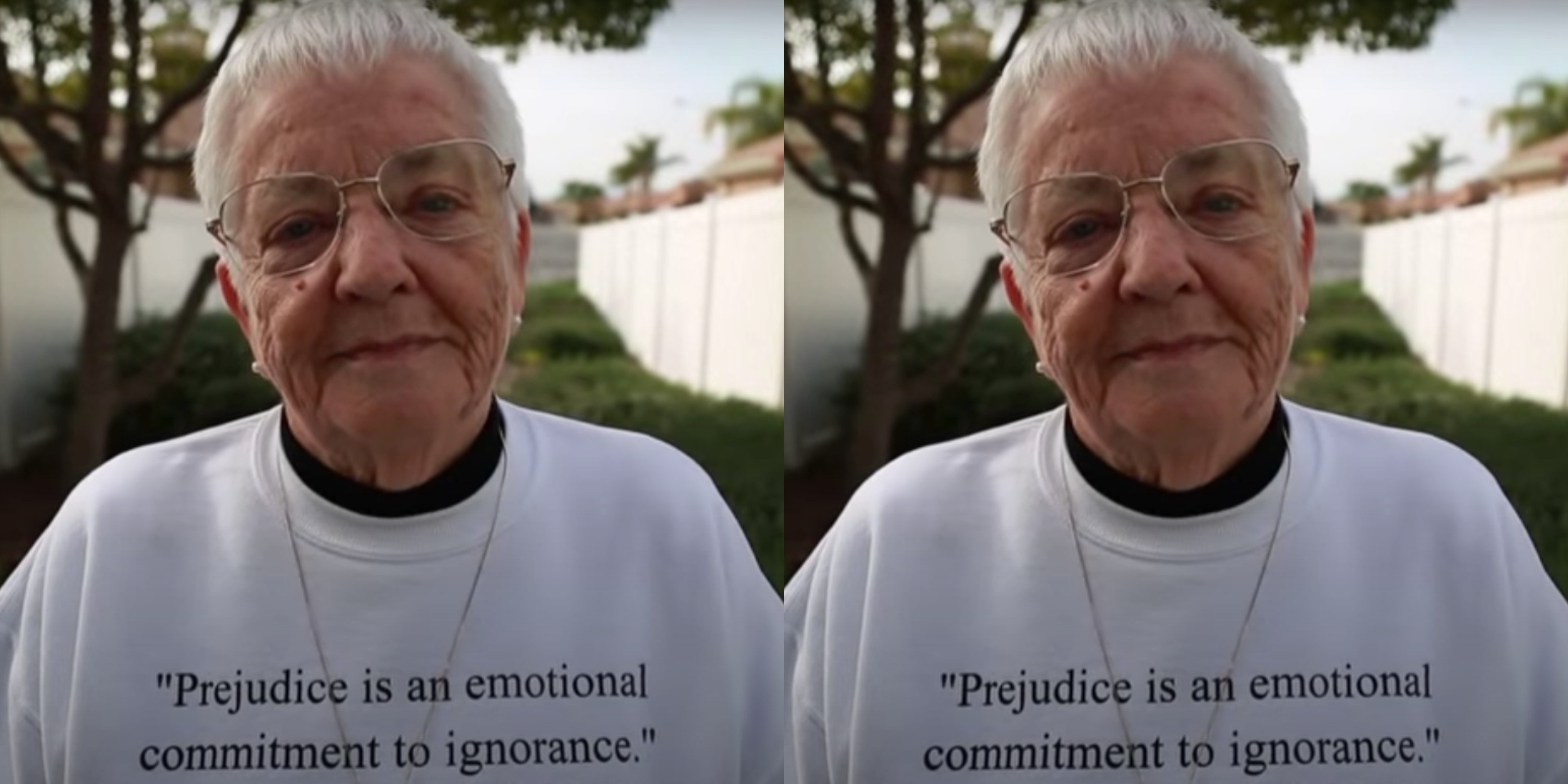15 Antiracism Lessons From The 50-Year-Old Jane Elliott Experiment That Are Unfortunately Still Relevant Today
Jane Elliot's experiment revealed that racism is learned — and not enough has changed.
 youtube
youtube Inequality (some subtle, some not-so-subtle) between the races has been around for centuries.
To this day, our nation continues protesting racism and discrimination. People have had enough of being seen as lesser and different, and imploring that people be not only not racist, but actively antiracist.
People are not inherently different — racism is a manmade societal structure, a fact that former schoolteacher Jane Elliott taught her third-grade class in 1968 in an iconic experiment documented in The Eye of the Storm.
Despite being conducted over 50 years ago, Elliott's experiment and its findings are still painfully relevant today and continue to provide powerful antiracism lessons in a format that everyone can relate to.
Antiracism lessons from Jane Elliott's experiment that are still relevant today:
Elliot divided her third-grade class into two groups: those with blue eyes and those with brown eyes. Her goal was to give an impactful lesson on racism based on a physical characteristic completely out of our control.
1. "I watched little brown-eyed white people become vicious, ugly, nasty, discriminating, domineering people in the space of fifteen minutes. I watched brilliant little blue-eyed white Christian children become timid and frightened and angry and unable to learn in the space of fifteen minutes." —Jane Elliott
2. You can easily convince people that for any reason they are superior and perfect. They can be taught that they have the right to rule and others are inferior. And then you can also easily do the opposite by convincing people that they are inferior, not able to do anything, and everything they do is wrong. It does not take long at all.
3. "People's number one freedom in the United States of America is the freedom to be totally ignorant about those who are other than white." —Jane Elliott
4. "We live in the land of the free and the home of the brave. White people are the free and people of color have to be brave." —Jane Elliott
5. Prejudices are created within the mind.
6. There is inner turmoil faced when people are divided based on race — enough to become violent.
7. Racism against people causes them to feel innately powerless and hopeless.
8. Discrimination leads to hatred.
9. In the experiment, students quickly realized that if someone was picking on someone else, that meant they weren't picking on you. This makes the people who are "superior" feel a sense of relief that they are not the ones being discriminated against, and they, therefore, are more likely to stay silent about discrimination.
10. Racism changes people psychologically.
11. "White people's number one freedom in the United States of America is the freedom to be totally ignorant about those who are other than white." —Jane Elliott
12. People who are different have to fight every day to be heard.
13. "People who say to me, 'I don't see color,' or who say to a Black person, 'I don't see you ask Black,' are saying, 'I have the freedom to deny the largest organ inch-by-inch on your body, which is your skin.' Now if you can't see my skin, you can't see me." —Jane Elliott
14. "There is only one race, it's the human race." —Jane Elliott
15. "Educate yourself. You didn't get educated in school, you got indoctrinated in school." —Jane Elliott
Jane Elliott's experiment lasted for two days. The first day, she told her class that blue-eyed people were considered to be better.
Elliott soon found that the brown-eyed children felt like they were not worth anything and separated from their blue-eyed classmates. The blue-eyed people called them names and led them to feel as though they were inferior.
One student said calling a brown-eyed friend brown-eyed was the same as calling an African American person a derogatory name.
The second day, the brown-eyed people were better than blue-eyed people, and the same thing happened in reverse.
It's interesting — and agonizing — to watch how quickly people turn to discrimination when they are told something.
The students performed better in the class when they believed they were superior to the others. When they were put down, or seen as inferior, they performed worse. When Elliott asked the children how they felt when they were the ones being discriminated against, the children said that they were like dogs on a leash, chained up in a prison with the key thrown away.
The children agreed that discrimination should not happen based on the color of one's eyes — just as a person's skin color doesn't make them superior to anyone else.
Emily Francos is a writer who covers astrology, pop culture, and relationship topics.

